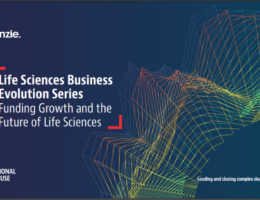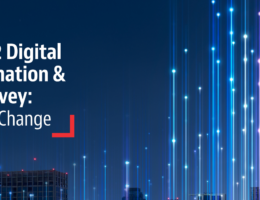On 17 May 2024, Colorado Governor Polis signed the landmark Colorado AI Act (Senate Bill 24-205) into law. Colorado is now the first US state with comprehensive AI regulation, adopting a classification system like the EU’s recent AI Act. The law will take effect 1 February 2026.
On 30 October 2023, President Biden issued a 63-page Executive Order to define the trajectory of artificial intelligence adoption, governance, and usage within the United States government. The Executive Order outlines eight guiding principles and priorities for US federal agencies to adhere to as they adopt, govern, and use AI. While safety and security are predictably high on the list, so too is a desire to make America a leader in the AI industry, including AI development by the federal government.
The recent proliferation of artificial intelligence (AI) tools, particularly generative AI tools, has brought these questions to the forefront of ongoing conversations about the role that AI will play in the marketplace. As an advocate for and enforcer of consumer protection laws, the US Federal Trade Commission recently offered reminders and recommendations for companies offering digital products and AI tools.
Artificial intelligence and machine learning technology is driving important new business opportunities across a growing number of industry sectors, including consumer goods and retail. Many CG&R companies are looking into how AI can enhance their business processes and customer interactions and with generative AI and the arrival of ChatGPT, the scope for application is staggering.
Baker McKenzie, in partnership with Accenture LLP, invites in-house corporate legal teams and interested business stakeholders to join us in person on Thursday, 1 June 2023, to discuss how various legal departments are addressing AI and how companies are managing these challenges and risks. The event will take place in the Baker McKenzie Chicago office.
On 3 April 2023, FDA issued a draft guidance for industry, Marketing Submission Recommendations for a Predetermined Change Control Plan for Artificial Intelligence/Machine Learning (AI/ML)-Enabled Device Software Functions, for manufacturers whose medical devices use machine learning technologies to improve patient care. Through the draft guidance, FDA intends to provide a least burdensome approach to support iterative improvements to machine learning-enabled device software functions or ML-DSFs through modifications, while continuing to provide a reasonable assurance that the device is safe and effective. In essence, manufacturers can proactively seek FDA’s concurrence with the intended modifications to the applicable devices without additional marketing submissions for each modification in the future.
Baker McKenzie’s TMT Looking Ahead 2022 five-part series explores key themes, offers timely insights, and lays out recommendations for technology, media and telecommunication companies looking to navigate the latest industry developments. Topics covered include tech regulation and compliance, tech M&A, interactive entertainment, 5G and TMT as the driver of change.
Digital transformation is here to stay. Cloud services and the use of data are accelerating and DT programs evolving as businesses adapt to the current pandemic and position themselves to remain competitive. Data remains a crucial asset in the digital economy with its collection, storage, location, analysis and protection all critical to success. The latest Baker McKenzie Digital Transformation & Cloud Survey provides compelling insights on digital transformation trends.
How do life sciences companies intend to leverage new and existing sources of growth? Explore the trajectory of life sciences transactions in our latest report.
The latest iteration of our annual Digital Transformation and Cloud Survey features insights from 500 global respondents, who cite heightened attention on and investment in cybersecurity, AI and the cloud as indicators of digital transformation being an integral part of enterprise thinking and planning. In this report, we provide these results together with insights from our almost decade of surveying the marketplace and thought leadership in digital transformation and cloud.








